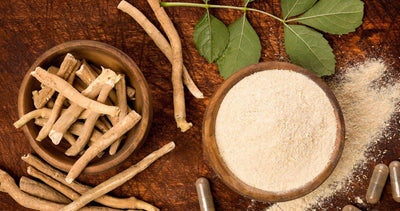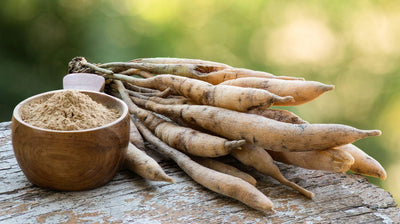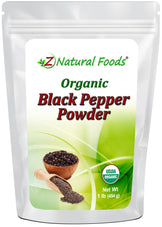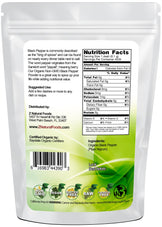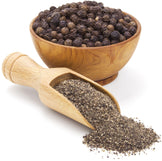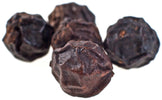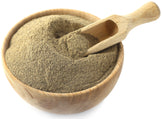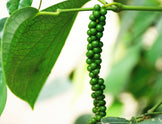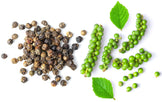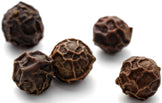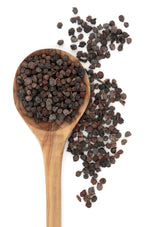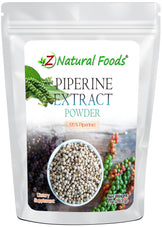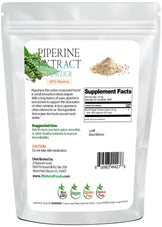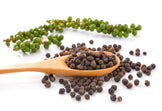Description
Description
Black pepper is known as the “The King of Spice” as it is one of the most commonly used spices in the world.
That’s because the fruit of the black pepper plant (from the
A pinch of black pepper is added to almost every recipe you can imagine!
Not only is black pepper used as a wonderful flavoring spice,
For over 4,000, black pepper has been trading as a commodity. The tiny hard nut - like a berry - has become a precious form of commerce spreading from India to the world. Pepper is largely from India, but Indonesia, Malaysia
Pepper comes in a variety of colors; black, green, white or pink. Each pepper varies in heat level.
- Black pepper is made by picking the pepper berries when they are half ripe and just about to turn red. They are cooked and left to dry, which causes them to shiver and become dark in color.
- Green peppercorns are picked while still unripe and green in color
- White peppercorns are picked when very ripe and subsequently soaked in brine to remove their dark outer shell leaving just the white pepper seed.
Black pepper entered Indian medicine as a prescription to cure constipation, earache, gangrene and heart disease. The spiciness of black pepper comes from a chemical called piperine which contains capsaicin.
Traditional uses of black pepper are varied because:
- Black pepper may have antioxidant and anti-inflammatory properties
- Black pepper may help the body secrete acids to aid in the digestion of proteins
- The outer layer of peppercorn may assist in the breakdown of fat cells, therefore peppery food may be helpful as a weight loss aid
- Piperine in black pepper may be effective against vitiligo, a skin disease that causes areas of skin to lose their pigmentation
- Black pepper may help in reducing toothaches and gum related diseases as it has antibacterial properties it may prevent the spreading of bacteria in the mouth when it is applied to the painful area mixed with salt
Additionally, black pepper contains a generous quantity of vitamin A and is rich in vitamins C
- Thiamin
- Vitamin B-6
- Riboflavin
- Choline
- Folic acid
- Beta carotene
- Cooper
- Iron
- Calcium
- Manganese
- Phosphorous
- Zink
- Selenium
- Potassium
The next time you want to spice up virtually anything, don’t forget 'The King of Spice' -- you’ll be glad you did!
For Bulk inquiries and custom formulations click here: https://www.znaturalfoods.com/pages/bulk

